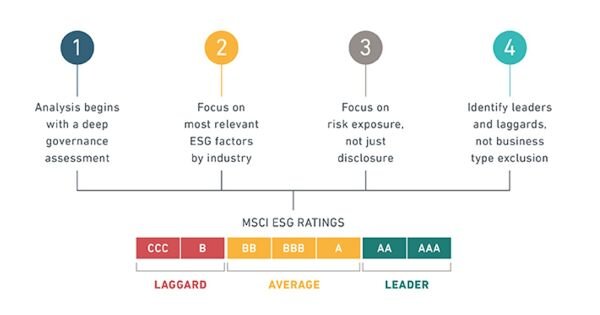![Institutions and ESG investing [Source US SIF]](https://fabbaloo.com/wp-content/uploads/2020/05/ESG1_img_5eb08be235b3b.jpg)
Charles Goulding and Preeti Sulibhavi look at the portrayal of 3D printing in the ESG market.
ESG investing, meaning, Environmental, Social and Governance – is a type of focused investing, and is an increasingly favored investment category. In this author’s opinion, the 3D printing industry embodies many environmentally-positive elements. 3D printing also provides many social benefits that we will address in a companion article.
If the 3D printing industry chooses to emphasize its environmental characteristics, it should document the underlying support so as not to be accused of “green-washing.”
Some of the environmentally beneficial aspects of 3D printing include:
Supply Chain Fuel and Transportation Cost Reduction. For example, if a part can be locally sourced rather than transported across borders, there will be large fuel consumption and emission cost reductions. See our Fabbaloo Blockchain article.
Inventory Reduction. Knowing that many required, critical replacement parts can easily be reproduced, eliminates the need for a substantial amount of inventory. Reducing inventory reduces raw material purchases, and work-in-process added inputs all resulting in less resource consumption.
Topology. With topology, multiple component product combinations can be redesigned with a reduction in the number of parts. Topology allows for a stronger part with less weight which is called topology optimization. Weight loss results in fuel cost reduction for planes, autos, ships, and trains.
Natural Fibers. Natural fiber 3D printing enables the use of natural fiber material for new products. Natural fiber materials are completely recyclable. Please see our Natural Fibers and 3D Printing article.
Field Service. Many leading field service businesses are anticipating a future with onboard service truck 3D printers. This will enable building equipment service providers such as elevator service technicians and HVAC technicians to create the required repair part and reduce additional service visits. This is highlighted in our Elevator and our HVAC articles. Reduced field visits will reduce fuel consumption and emissions and raise the bottom line.
In addition to sustaining our environment, ESG research can generate tax benefits as well.
The Research & Development Tax Credit
Enacted in 1981, the now permanent Federal Research and Development (R&D) Tax Credit allows a credit that typically ranges from 4%-7% of eligible spending for new and improved products and processes. Qualified research must meet the following four criteria:
-
Must be technological in nature
-
Must be a component of the taxpayer’s business
-
Must represent R&D in the experimental sense and generally includes all such costs related to the development or improvement of a product or process
-
Must eliminate uncertainty through a process of experimentation that considers one or more alternatives
Eligible costs include US employee wages, cost of supplies consumed in the R&D process, cost of pre-production testing, US contract research expenses, and certain costs associated with developing a patent.
On December 18, 2015, President Obama signed the PATH Act, making the R&D Tax Credit permanent. Since 2016, the R&D credit can be used to offset Alternative Minimum Tax (AMT) or companies with revenue below $50MM and, startup businesses can obtain up to $250,000 per year in cash rebates that can be applied to payroll taxes.
![Issues That Impact ESG Investing [Source: Great Lakes Advisors ]](https://fabbaloo.com/wp-content/uploads/2020/05/ESG2-1_img_5eb08be272052.jpg)
![ESG Ratings [Source: Balanced Rock ]](https://fabbaloo.com/wp-content/uploads/2020/05/ESG2-2_img_5eb08be2af002.jpg)
Conclusion
3D printing provides many environmental benefits. On the negative side, there are printer and material emission issues that the industry is steadily addressing. With the investment community increasingly focused on ESG the 3D printing, the 3D printing industry should consider communicating all of its positive environmental attributes.

